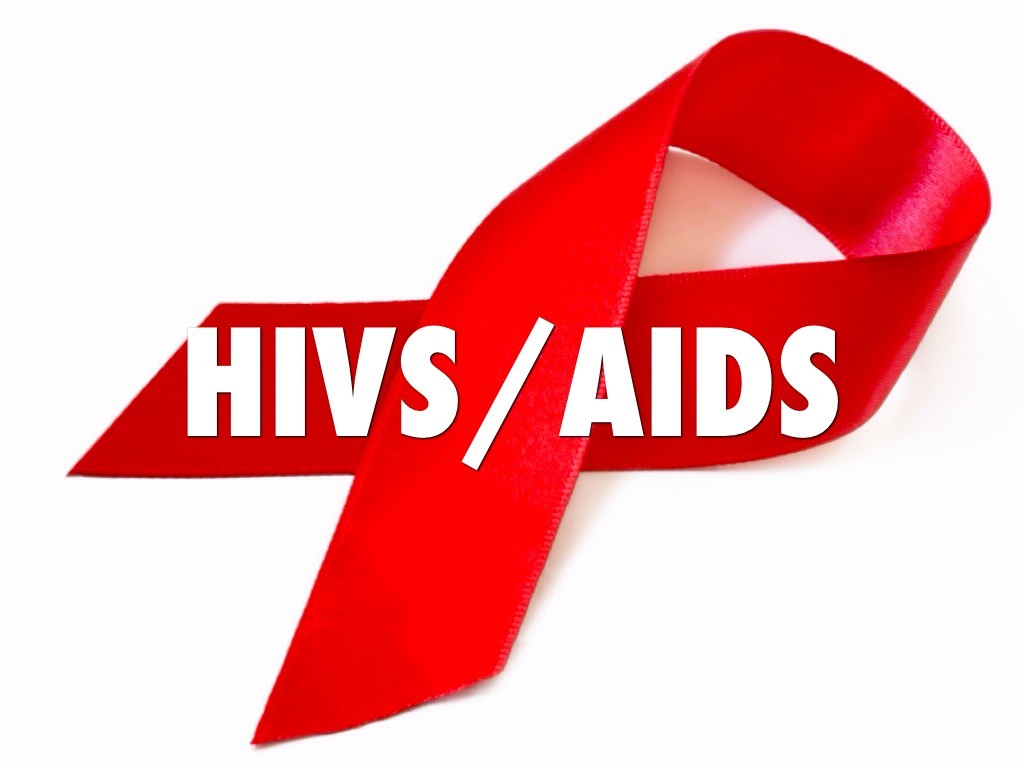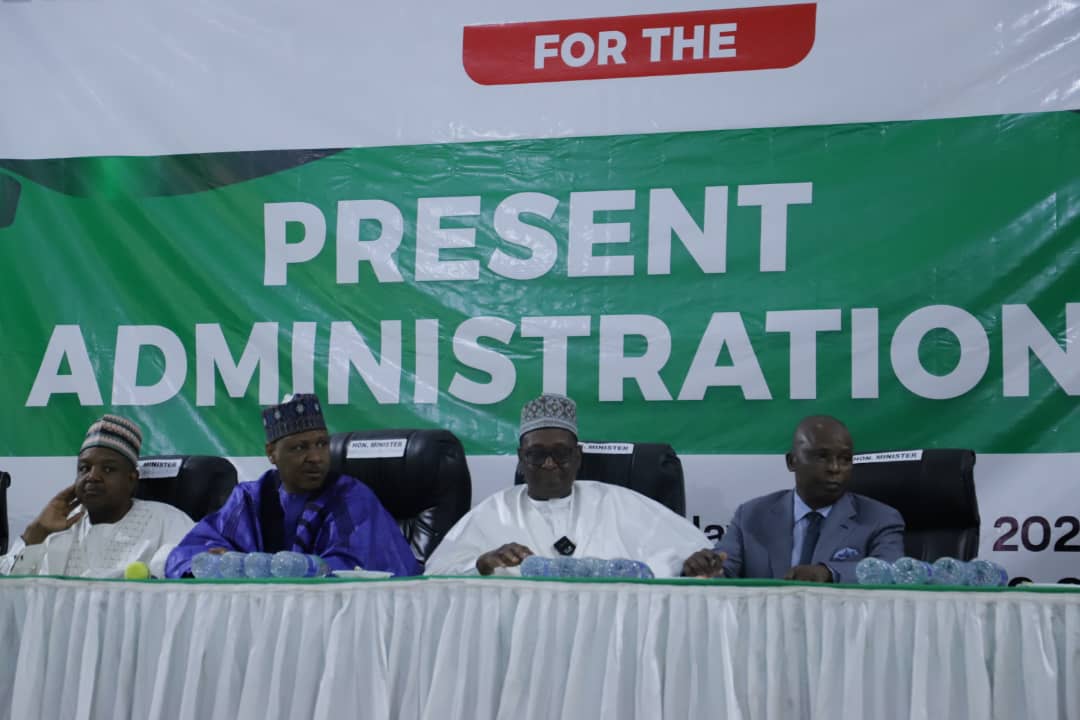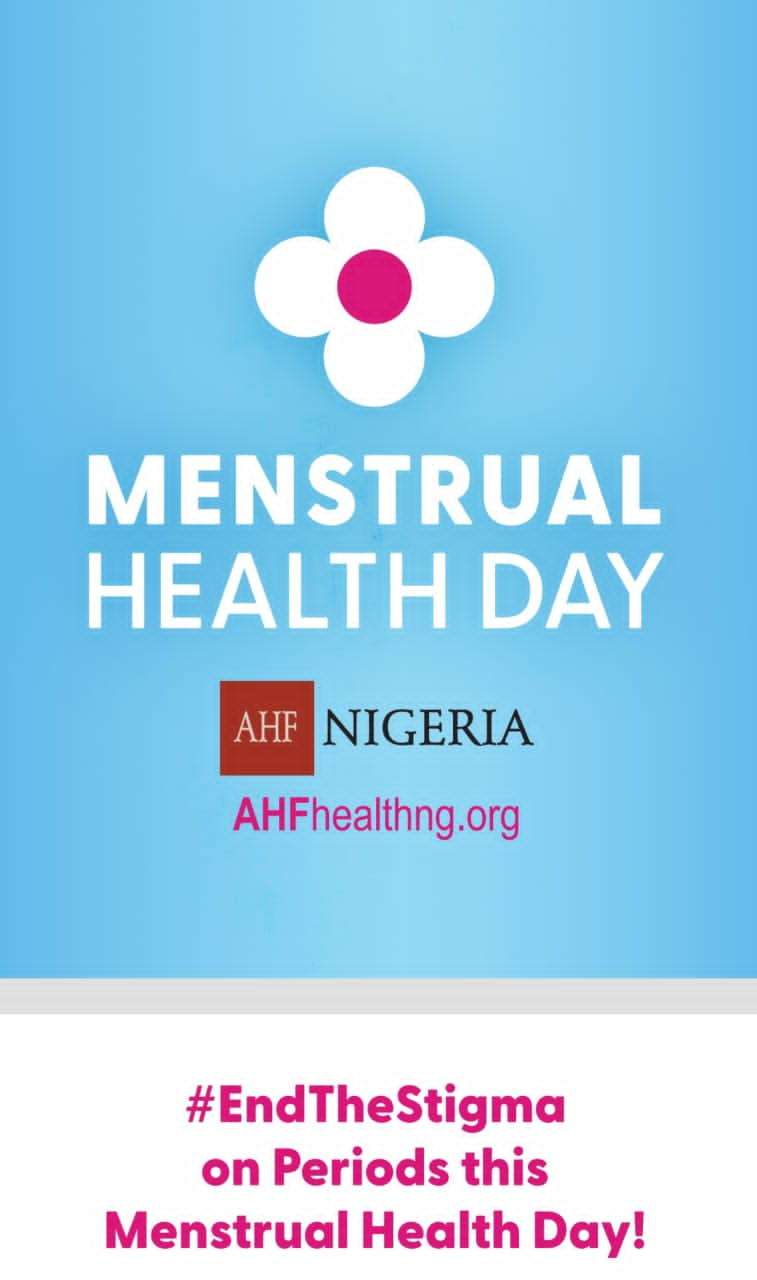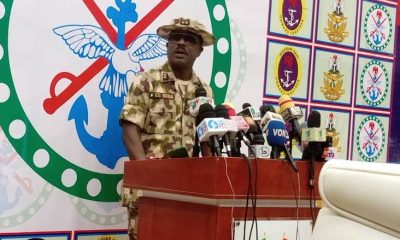Health
Child labour, societal consequences and insecurity

Against the backdrop of the International Day Against Child Labour, annually marked around the globe on June 12 to bring to the fore, problems associated with child labour and to find ways to eradicate the menace, there is need to evaluate its link with insecurity and other societal vices.
The day, which has “Act Now, End Child Labour” as its theme for 2021, is to raise awareness about the harmful mental and physical problems faced by children who are forced into harmful practices. According to layman’s perspective, child labour is the act of subjecting a minor between five to 17 years of age to forced labour, abuse, assault, capable of triggering psychological trauma. It also refers to the exploitation of children through any form of work that deprives them of their childhood, interferes with their ability to attend regular school, and is mentally, physically, socially and morally harmful.However, the International Labour Organisation (ILO) says not all work done by children should be classified as child labour, and be targeted for elimination.
It says children’s or adolescents’ participation in work that does not affect their health and personal development or interfere with their schooling, is generally regarded as being something positive.
This includes activities such as helping parents around the home, assisting in a family business or earning pocket money outside school hours and during school holidays, as these kinds of activities contribute to children’s development and welfare of families and provide skills to prepare them to be productive members of society.
ILO, therefore, defined child labour as work that is dangerous and deprives children of their childhood, their potential and their dignity, interferes with their schooling, obliging them to leave school prematurely; or requiring them to combine school with excessively long and heavy work that is harmful to their physical and mental development.
However, child labour could be due to poverty and high unemployment levels in given societies or communities even countries. While some stakeholders believe it is deliberate in some cultures, some argue that it is situational. Mrs Sophia Obinor, a primary school teacher in Abuja, blamed the increase in child labour to limited or the lack of access to compulsory, free education. Obinor explained that child labour is still permissible in states where existing laws or codes of conduct are often violated. She said “laws and enforcement are often inadequate. National laws often include exemptions and workers’ rights are repressed.”Mr Suleiman Abubakar of Eagle Eye Security company noted with dismay the increasing violation and abuse of the rights of children. Suleiman, who vehemently condemned all forms of exploitation, repression and dehumanisation of children, identified insecurity as one of the greatest consequences. He said majority of the bandits and terrorists threatening the peace of people today in the country are victims of child labour. Understandably, Richard Wright’s Native Boy is a clear illustration of the consequences of child labour. Wright’s protagonist, Bigger Thomas, mutated to a beast with utter hatred for the society and subsequent rebellion ventilated through violence and criminality as occasioned by his exploitation. Mr Ikenna Nwakamma of Nigerian Network of Religious Leaders Living or Personally Affected by HIV and AIDS (NINERELA+), urged policy makers and stakeholders to rise against child labour to save the society from imminent chaos. Nwakamma affirmed the ravaging brutality in the society as one of the consequences of child labour. He said every child who had been subjected to labour would mentally feel insecure, thereby resorting to self help. He added that “such self help can be armed robbery, cultism, banditry, terrorism, prostitution and many more. ”It is on record that globally, 152 million children aged five to 17 years are in child labour. About half of them, 72.5 million, perform hazardous work that places their health, safety or moral development at risk. One in five children in Africa is involved in child labour, making it the region where the risk of child labour is greatest. Half of affected children live in lower-middle and upper-middle income countries and the problem is prevalent in countries experiencing conflict and disaster. Dr Okai Aku of Planned Parenthood Federation of Nigeria (PPFN) said: “child labour is defined by international standards as work that is hazardous or performed by children who are too young. “Children work because their survival depends on it, because adults take advantage of their vulnerability, and because national education systems are weak. “Child labour is sometimes the result of some customs and traditions. ”Child labour has been on the increase in Nigeria, especially insurgents-riddled areas where children are internally displaced. Mr Nduka Arinze, the former Director, Population Management, National Population Commission (NPC), said hundreds of children who have been turned into orphans or internally displaced are subjected to exploitation in the North East. Meanwhile, ILO estimate shows that the current number of child workers in Nigeria is 15 million, about 43 per cent of the total population of minors. Child labour can result into extreme bodily and mental harm, and even death. It can lead to slavery and sexual or economic exploitation. And in nearly every case, it cuts children off from schooling and healthcare, restricting their fundamental rights and threatening their future. The time to take action against child labour is now, aimed at not only securing the children’s future but restoring hope and love among them. Consequently, there is the need to increase awareness on what constitutes child labour and for government to promulgate stringent laws and effectively implement them, as well as ensure more children are sent to school. Other measures are to discourage people from employing children in homes, shops and factories, among others, as well as support NGOs to continue to preach against the practice. (NANFeatures)** If used, please credit the writer, as well as the News Agency of Nigeria (NAN)
Health
AHF Launches Pad Bank For Menstruating Girls, Women In Benue

From Attah Ede, Makurdi
The AIDS Healthcare Foundation (AHF), a non-governmental organization, on Tuesday, promised to establish a pad bank for young girls in Angwan-Jukun, a community located in the heart of Makurdi, the Benue State capital to enable them have access to free sanitary pads.
The Foundation further said they take issues relating to women and girls seriously and want to play a part in safeguarding the menstrual health of people in the state.
Speaking during a symposium organised by the AHF -Nigeria to mark the 2024 Menstrual Health Day held at Agyogoyo, Angwan-Jukun community, Makurdi, Benue state, AHF-Nigeria Advocacy/Marketing Manager, Steve Aborisade, assured that the AHF would partner with the state government to provide sanitary pad in the State.
Steve said the idea of setting up the Pad Bank is to help those young girls that don’t have the means to get the sanitary pads to be able to access them free of charge.
According to him, some of those girls do not know when their menstrual periods start and it might just start on their way to school or the church and by this they get stained, they can just rush to the Pad Bank explain to the person there and get a free pad.
He further said the Pad Bank would be cited at the home of the traditional head in the community for easy access and AHF would collaborate with other government agencies and CSO’S to make the project a reality.
Aborisade called on national and state houses of assemblies to make legislation that could compel government at all levels to provide free sanitary pads to girl children in schools in order to ameliorate challenges faced by those who could not procure any one.
He also said this years theme was tagged Period Poverty because these girls don’t have access to sanitary pads due to the high price in the market and with that, they use things that are not to be used thereby causing damage to their body system.
” We would follow up with going to see the members of the State House of Assembly, even if it is 0.5 percent of the budget which should be devoted to the girls in providing sanitary pad for them, would be a welcomed idea.” He said
“We have about 600 girls presently benefiting from this project, and each the girls is being given two months supply of free sanitary pads and are being educated on how to use it,” Steve said .
Also speaking at the program, Hon. Peter Uche, Chairman House Committee on SDGs and NGOs Benue House of Assembly, commended AHF for organising the program, which is aimed at educating the girl children.
Hon. Peter said some of these girls are so naive about how to take care of their body and this is why the girl child education is very key especially in various homes.
” Some parents don’t want to even talk to their daughters about Sanitary hygiene and this would lead to unwanted pregnancy which brings about depression on the girl child.
“The level of illiteracy among our juvenile is quite alarming. We live in a religious society that when you talked about juvenile, it call for concerned. So many girls have lost their lives. It is good that AHF is organising this programme to educate them about their menstrual cycle.
“Parents should be involved in this campaign because they have a role to play. When an issue come, some parents send their child out of their homes, forgetting that there is needs for rehabilitation and bring the child back home.
“Some parents don’t listen to their children when they complain about their hygiene but are eager to chase them out from the house when they come home with unwanted pregnancy.
Therefore, this programme should be held across the state. What the girls are experiencing today is an opportunity to key into to earn a good living”, Uche stated.
He pleaded with parents to always put the education of their children first and be watchful of the type of friends and company they keep, and to also lecture them in proper hygiene.
Also speaking at the event, Dr. John Ugboji the Senior Regional Medical Manager AHF, cautioned the girls to pay attention to their hygiene and that AHF not only support the girls with materials, they also support them with the knowledge on personal hygiene.
He intimated the girls that, their knowledge about menstrual hygiene, would determine how their life turns out to become and by this improving their lifestyle.
On part, the Mental Desk officer of Benue State Aids Control Agency(BENSACA), Mrs. Martina Adiyia enjoined the girls to see menstrual circle as a time for celebration as it is not a curse or a disease for one to be ashamed of.
She said BENSACA which is mainly in charge of people living with HIV/AIDS would also take on the issue of providing free sanitary pads to young girls as an external program into the Agency.
One of the beneficiaries who identified herself, Monica Terna, appealed to government to come to the aid of the girl child by providing for them free sanitary pads especially in rural communities.
She said making the kits available by this it would help in reducing infections in most of the girls as some of them don’t have the means to get these pads.
highlight of the event was distribution of sanitary pads and demonstration to the girls on how to use a sanitary pad and the different types of sanitary pads to use which was done by Dr. Laadi Swende Family physician Federal Medical Centre Makurdi.
Health
Access to Healthcare: FG Revitalizes 8,300 PHCs in Nigeria

By Laide Akinboade, Abuja
In order to increase access to quality healthcare in Nigeria, the Federal government, FG, said on Friday, that it has concluded arrangements to revitalize about 8,300 Primary HealthCare Centers,PHCs, across Nigeria.
Coordinating Minister of Health and Social Welfare, Ali Pate, revealed this at the Ministerial Sectoral Briefings organised by office of
Secretary to the Government of the Federation, SGF,
to mark the first anniversary of President Bola Tinubu’s administration, in Abuja.
The Minister of Health said N260 billion have already been set aside this purpose.
He also revealed that the FG intends to make the PHCs fully functional and upgraded them to 17,000 in less than 3 years.
According to Pate, “We outlined a plan to revive 8300 primary health care centers across the nation to make them fully functional and to expand and upgrade to 17,000 Primary Health Care Centers over the next 3-years.
“The expansion is to refurbish these centers, equip them, making them fully functional
to deliver essential services such as immunization, reproductive, maternal, newborn, and child health services, treatment of non-communicable diseases, and to facilitate
referrals to secondary facilities. However, this ambitious plan requires the states to
complement the efforts of the federal government.
“Regarding the revitalization of primary health care, which aligns with the President’s directive, I am pleased to report that 260 billion Naira is already currently available at the state level for this purpose through IDA financing and the BHCPF.
“The revitalization
of our primary health care centers hinges on the availability of resources and hence significant efforts made to mobilize and deploy the funds. We are now providing
guidelines to assist the states in the implementation of the revitalization projects, ensuring that the resources are used prudently for their intended purposes”.
“We reviewed audits on the previous utilization of such financial resources and identified major gaps in several states. These issues were addressed through the National Economic Council and the Governors’ Forum. Our state governors have been instrumental in aligning with the President’s vision for increasing investments in the health sector. The transparency of disbursing the Primary Health Care Provision (BHCPF) funds was enhanced by conducting it publicly and establishing a hotline for
Nigerians to report any misuse of resources. Oversight bodies such as the ICPC and EFCC are also encouraged to monitor to ensure that the implementation at the state level aligns with the intended objectives, particularly in terms of infrastructure and
equipment and that the resources not misused”.
On capacity building, the Minister said, the ministry in the next three years have commenced training of over
120,000 frontline health workers serving rural populations and they would be equipped with the
necessary skills, supported by the infrastructure and equipment we will provide.
He said, “At least 1,400 Primary Health Care Centers are now equipped to provide skilled birth attendance, funded through the NPHCDA and the NHIA, covering the 8,300 facilities.
More than 2,400 health workers, including nurses, doctors, and midwives,have been
recruited to provide services to Nigerians, many of whom are women in rural areas
delivering essential services”.
On vaccination, he said, “In the area of vaccination, over 5 million Nigerian children have been vaccinated
against diphtheria using pentavalent vaccine. More than 10 million Nigerian children received the tetanus and diphtheria vaccines. We are working hard to stop the circulating variant polio viruses showing up in Kano, Katsina, Sokoto, Zamfara and Kebbi States. We have delivered measles vaccines to more than 5 million children to protect them against measles, and 4.95 million girls 9-14 years in 15 States have received HPV vaccines to protect them against cervical cancer, representing 80% target, among the highest in the world. 6 million more are planned to receive the vaccines in the next phase for 21 states starting from May 27, 2024.
“In terms of hospital equipment and infrastructure, the federal hospitals have
successfully executed 201 specific infrastructure projects in the last 1 year.
Additionally, 179 specific pieces of important medical equipment were procured by the federal government and distributed across the six geopolitical zones. In 33 of our federal tertiary hospitals, approximately 4.5 million Nigerians accessed outpatient
health services, and 1.6 million had inpatient admissions. Showing that Nigerians are using the services provided by the Federal Government in those facilities, supported by an amazing army of health professionals.
“We are witnessing substantial upgrade in healthcare infrastructure, a testament to
the President’s leadership. Plans are underway for the groundbreaking ceremony of 10 healthcare infrastructure projects, through the NSIA, across the six geopolitical zones, including diagnostic centers and oncology centers. These developments are part of a broader initiative involving public-private partnerships. We are moving
forward with a major PPP to get to the full business case stage for expanding
infrastructure and equipping 6 teaching hospitals”.
Health
MHD: AHF Says 500 Million Menstruating People Experiences Period Poverty Globally, to End Stigma In Nigeria

From Attah Ede, Makurdi
AIDS Healthcare Foundation (AHF) Nigeria, has vowed to fight period poverty and eliminate the harmful stigma surrounding menstruation that keeps women and menstruating people of all ages from thriving.
To end period poverty in the country, AHF Nigeria is poised to place menstrual health issues as a key national agenda, and it is in this regard that they are committing resources to creating greater awareness in the general population and bringing different stakeholders to join the conversation.
The Foundation noted that an estimated 1.8 billion people menstruate globally, while 500 million experience period poverty, saying lack of access to menstrual health products, safe and clean facilities, and accepting communities count for this figure.
The Advocacy and Marketing Manager of AHF in Nigeria, Steve Aborisade, stated this in a statement he issued and made available to newsmen in Makurdi, Benue State capital, Sunday.
He was speaking ahead of this year’s Menstrual Health Day, being observed annually on May 28 to raises awareness about the importance of menstrual health education and resources.
Dr. Aborisade informed that already, the foundation has extended invitation to all on this Menstrual Health Day (MHD) at Government Senior Secondary School, Jabi, FCT, Abuja, Ibesikpo Secondary Commercial School, Nung Udoe, Uyo, Akwa Ibom state and in Agyogoyo Angwan-Jukun community, Makurdi, Benue state, on May 28.
He said they will use the commemorative events to distribute free sanitary pads and advocate for effective menstrual health management for all who need it.
According to him, in this year celebration, AHF Nigeria is having a multi-state commemoration to reach more young women and girls with menstrual health education and awareness and distribute free sanitary pads to as many girls as they can reach out to in their states of operation.
“Beyond these, AHF Nigeria is also working through some CSOs and CBOs to distribute free sanitary pads to young women and girls in communities across our program states.
“In Abuja, FCT, Ibesikpo, Uyo, Akwa Ibom state and in Angwan-Jukun community, Makurdi, Benue state, AHF officials in collaboration with partners shall be hosting engaging outreach events to provide awareness and education about menstrual health management issues.
“We will also distribute free sanitary pads to young women and girls at these events. There will also be live radio engagements in Abuja, Uyo and Makurdi to propagate menstrual health management education widely.
“To end period poverty, AHF Nigeria is poised to place menstrual health issues as a key national agenda, and it is in this regard that we are committing resources to creating greater awareness in the general population and bringing different stakeholders to join the conversation.
” Young women and girls, irrespective of their location or social status must be able to have their periods in a safe and conducive environment and without the difficulties that a lack of access to sanitary products presently constitutes”, Aborisade stated,”
Dr. Aborisade however quoted AHF Nigeria Country Program Director, Dr. Eche Ijezie, as saying that “those identified barriers, along with stigma, can lead to poor health outcomes, missing school or work, and adverse effects on mental health”.
“On this note, this Menstrual Health Day – let’s end period poverty and end the stigma”.





























